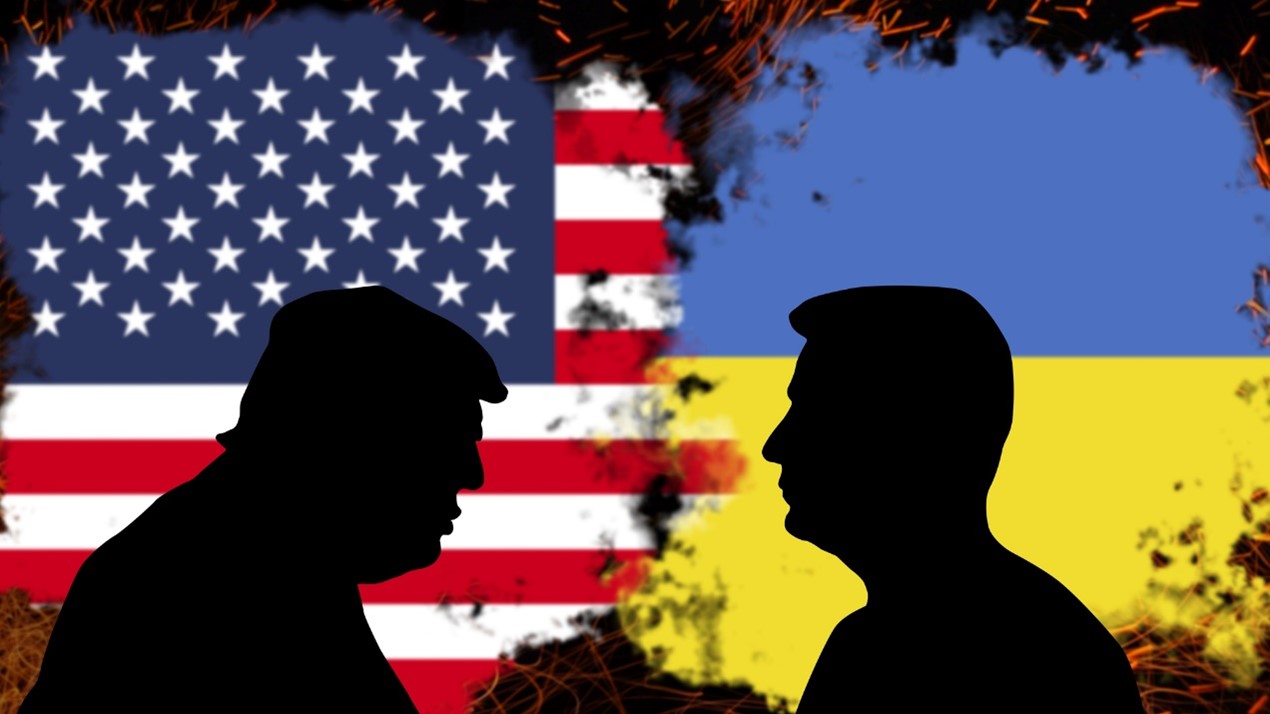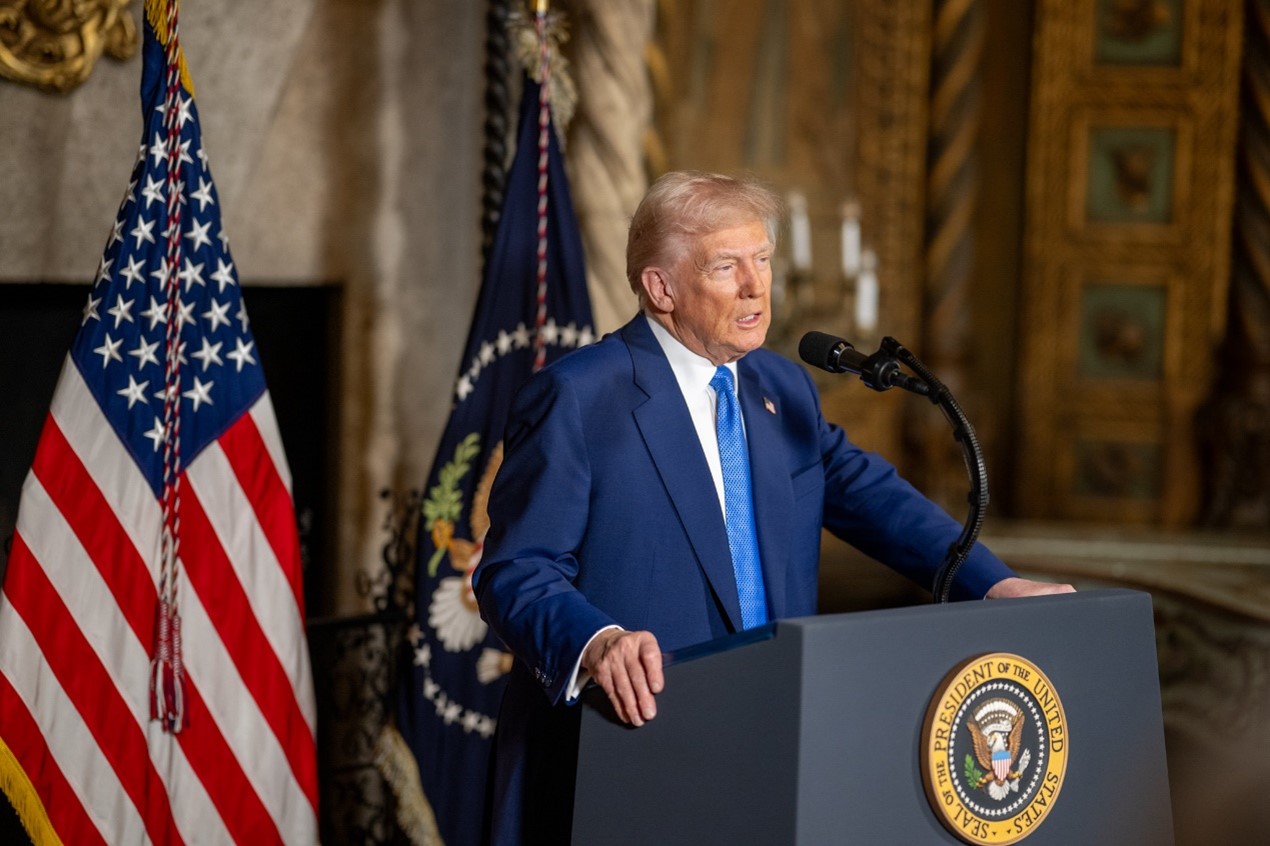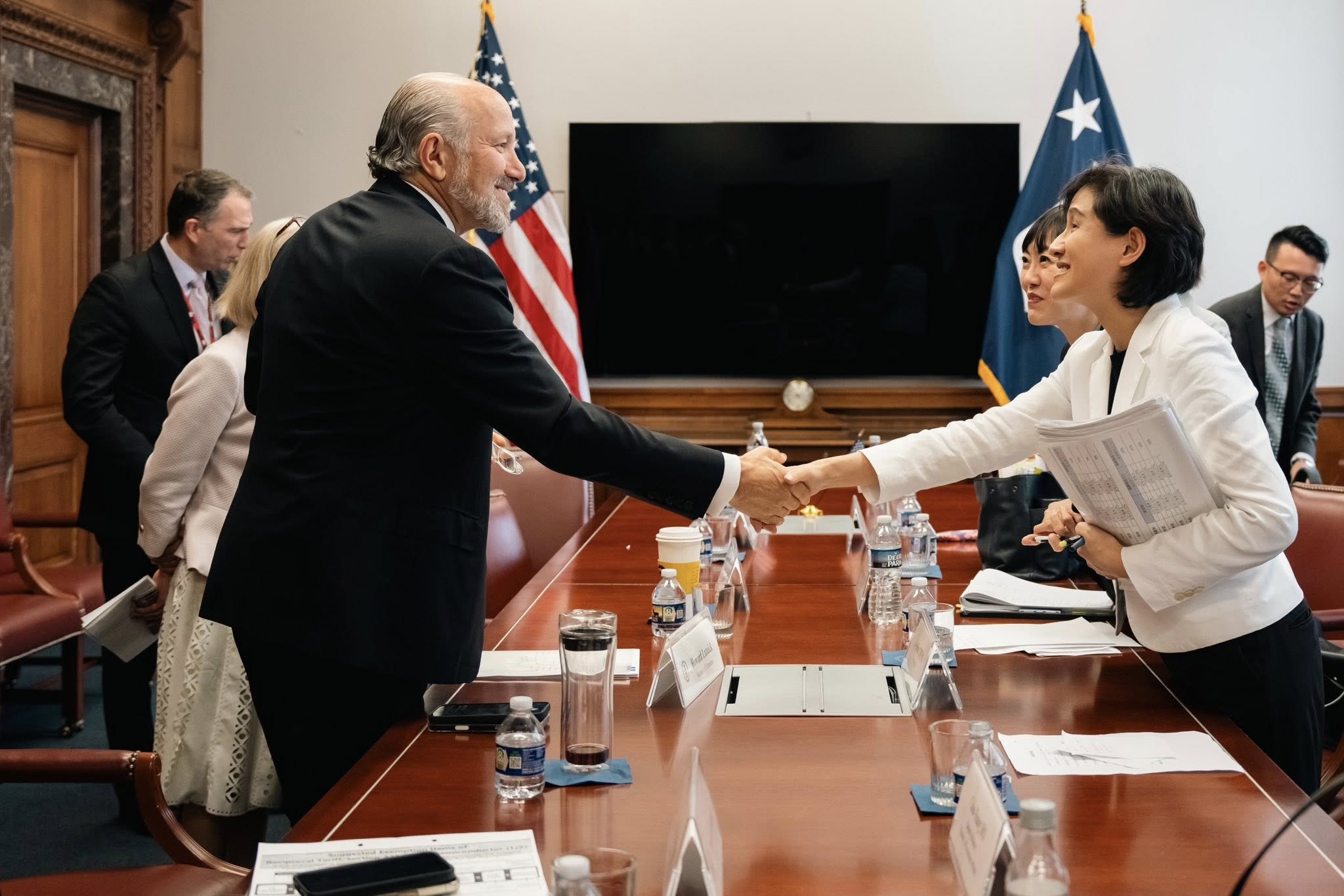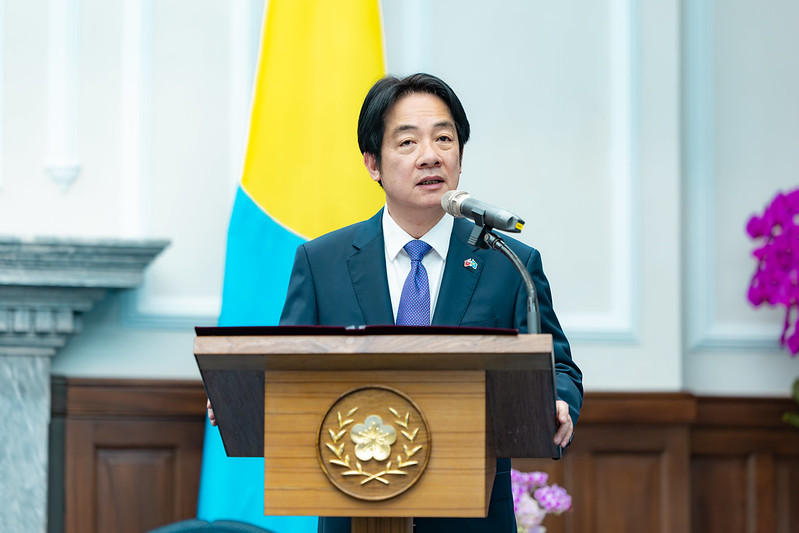Since the installation of the second Trump administration in January 2025, the comparison between Ukraine and Taiwan merits interrogation from a new angle – in light of President Donald J. Trump’s pursuit of “power through uncertainty” and the resulting sharp shift in Washington’s Ukraine policy, how will the United States security partnership with Taiwan evolve? Picture source: Depositphotos.
Prospects & Perspectives No. 18
Washington’s Sharp Shift in Ukraine Policy: Implications for Taiwan
By Marcin Mateusz Jerzewski
Following the onset of the full-scale Russian invasion in Ukraine in February 2022, numerous pundits and policy analysts parroted the notion of “Ukraine today, Taiwan tomorrow.” The phrase would often serve as a basis for facile “war and peace narratives,” ignoring the nuance in Ukraine’s and Taiwan’s respective predicaments.
Yet, since the installation of the second Trump administration in January 2025, the comparison between Ukraine and Taiwan merits interrogation from a new angle – in light of President Donald J. Trump’s pursuit of “power through uncertainty” and the resulting sharp shift in Washington’s Ukraine policy, how will the United States security partnership with Taiwan evolve? Following the fallout from the Oval Office meeting between Trump and Ukrainian President Volodymyr Zelenskyy as well as a highly transactional approach to maintaining U.S. support for Kyiv, it is imperative to interrogate how the Taiwanese public and policymakers might respond to the potential changes in U.S.-Taiwan ties.
The Primacy of the Information Space
In the short run, the most immediate effects of Washington’s pivot on Ukraine for Taiwan may be witnessed in the information space. The People’s Republic of China and its proxies constitute the primary authoritarian adversary for Taiwan, which has intensified its efforts in psychological and public opinion warfare through disseminating propaganda as well as manipulating and distorting narratives in traditional and social media.
Information operations targeting Taiwan have served two main purposes. Firstly, they seek to undermine public trust in democratic processes and institutions. The second objective directly targets U.S.-Taiwan ties. While no formal treaty binds the U.S. and Taiwan, reliance on Washington has been the constant element of Taiwan's security strategy. Consequently, the amplification of “U.S. skepticism” narratives presents itself as another umbrella category of information operations targeting Taiwan.
Taiwan Information Environment Research Center (IORG) defines “U.S. skepticism” as “an evolving collection of unreasonable or manipulative narratives that suggest that Taiwan should keep a distance from or reduce its relations with the United States.” Some of the U.S. skepticism narratives that surfaced in Taiwan in recent years sought to depict Washington as a “fake friend” that will abandon the island democracy in times of crisis, a weak entity that is not a democracy itself, and a source of chaos in the world.
Will Washington’s Pivot on Ukraine Fuel US Skepticism?
Consequently, the perceived abandonment of Ukraine by the second Trump administration might trigger an increased sense of “U.S. skepticism” among the Taiwanese public. Concrete statements from Ukrainian stakeholders might echo out into Taiwan’s court of public opinion – for example, at a March 28, 2025, press conference, Zelenskyy stated that the U.S.’ role as Ukraine’s biggest arms supplier is at an end. In parallel to the proliferation of the U.S. abandonment sentiment in Ukraine, Taiwanese news outlets began to publish multiple pieces in March, which effectively revived the notion of “Ukraine Today, Taiwan Tomorrow.” This holds true, in particular, for those outlets whose editorial lines are more conciliatory towards China, such as the China Times. Yet, this time the comparison between Taipei and Kyiv does not refer to the likelihood of a kinetic conflict with a regional authoritarian hegemon, but rather, refers to a pivot in U.S. policy.
At this stage, the quantitative evidence for the rise of U.S. skepticism since the installation of the Trump 2.0 administration remains inconclusive. According to the March 2025 Taiwan Public Opinion Foundation's poll results, the number of respondents confident in U.S. troops' intervention in case of a Chinese attack increased since the previous poll carried out in November 2024. There was a 9.4 percentage points increase between November 2024 (29.8 percent) and March 2025 (39.2 percent). Since March 2022, which witnessed the onset of the full-scale invasion in Ukraine, the majority of respondents have found it unlikely that the U.S. would send troops to defend Taiwan if China attacks.
The results from 2025’s first wave of the Taiwan National Defense Security Public Opinion Survey, a quarterly poll of the Institute of National Defense and Security, show that 49% of respondents believe that the U.S. would deploy troops to assist Taiwan in the event of conflict across the Taiwan Strait. As the figure is similar to previous waves of the study, it suggests limited change to public confidence in U.S. security commitments. However, it ought to be borne in mind that the study was carried out in early January, before Trump’s explosive clash with Zelenskyy in the Oval Office.
Previous events that exacerbated the sense of U.S. skepticism among the Taiwanese public have included the 2021 withdrawal of US forces from Afghanistan and the decision of the U.S. and other Western countries to refrain from putting boots on the ground in Ukraine following the onset of the full-scale Russian invasion. Consequently, scrutiny over changes in the Taiwanese public sentiment regarding the U.S. will remain essential during the ongoing ceasefire negotiations and debates over a minerals agreement between Washington and Kyiv.
“The Art of the Deal?”
While opinion polls demonstrate a limited effect of the U.S. pivot on Ukraine on the Taiwanese public’s confidence in Washington’s implicit security commitments, it is noteworthy that respondents remain skeptical about the expansion of economic deals with the U.S. This becomes particularly relevant as one considers the specific operationalization of “U.S. skepticism” narratives in the Taiwanese information space. IORG’s demonstrates that among U.S. skepticism narratives, the notions of “U.S. as an abandoner” (Taiwan is merely a chess piece for Washington and will be jettisoned) and “U.S. as a fake friend” (Washington claims to but does not support, coerces and benefits from Taiwan) have been the prevalent rhetorical manifestations of information efforts seeking to undermine Taiwanese public’s confidence in the U.S.
Consequently, the transactional nature of Trump’s approach to foreign engagement might be another source of narratives that fuel “U.S. skepticism” in Taiwan. Tying security cooperation to economic deals that benefit U.S. interests could be instrumentalized to perpetuate the above-mentioned notion of the U.S. acting as an exploitative “false friend.” In Ukraine, one dynamic that can exacerbate this narrative is the contentious minerals agreement. In Taiwan, it could be linked to big-ticket investments in critical technologies, including semiconductors. In early March, the Taiwan Semiconductor Manufacturing Corporation (TSMC) announced plans to build five new factories stateside, bringing its total investment in the U.S. to US$165 billion. Yet, the latest INDSR study demonstrates that the Taiwanese public remains divided on this issue. About 38% of respondents supported setting up wafer fabs in the United States, but 49% were opposed.
The trajectory of the “U.S. skepticism” narratives in Taiwan under Trump 2.0 remains as uncertain as the trajectory of the administration itself. One thing is sure, however. Trump’s efforts to bully Zelenskyy into compliance under the threat of a “cut and run” solution to the U.S. (dis)engagement in the war are a gift on a silver platter to malign actors seeking to disrupt the information space in Taiwan.
(Marcin Mateusz Jerzewski is Head at the Taipei Office of the European Values Center for Security Policy.)






